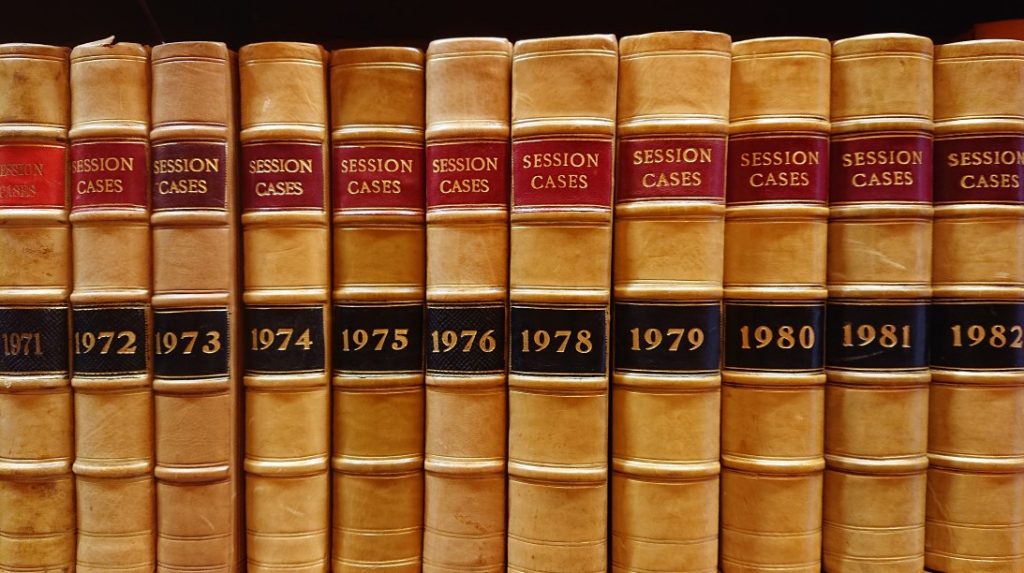
Session Cases volumes 1971-1982, image courtesy of the Supreme Court Library team, SCTS.
This year the Scottish Council of Law Reporting celebrates 200 years of publishing Session Cases, Scotland’s most authoritative law report series. From the SCLR website:
The Session Cases law report series contains all the key appellate decisions, civil and criminal, from the Court of Session and High Court of Justiciary in Scotland together with selected cases decided at first instance.
Also included in Session Cases are all decisions, as issued, on Scottish appeals to the House of Lords and to the Privy Council. All judgments are reported in full.
The judges who gave opinions (judgments) in each case have the opportunity to review the report before it is published – this gives Session Cases its unsurpassed authority in Scottish courts.
The first case ever published in Session Cases was Rev. Wm. Strang v Wm. McIntosh (1821) 1 S.5, dated 12 May 1821. You can access a copy of this case via our subscription databases Westlaw or Lexis Library UK, via the Law Databases page. If you’re not familiar with using these databases we have a recording of a session on Using Legal Databases available here (22 mins) There’s more information about SC and other law reports available via our subscription services on the Law Subject Guide ‘Law Reports’ page.
To mark this anniversary the Scottish Council of Law Reporting is running a poll to determine readers’ top three cases featured in Session Cases. They don’t have to be the most important cases, legally, but may be just a quirky case or one that has caught your interest. You can vote for your cases here: SurveyLegend Survey.
Another way SCLR marked this milestone was by creating a postgraduate research scholarship available to students in Scottish institutions studying Scots Law. The inaugural recipient of this award was Shona Warwick, a PhD candidate at Edinburgh. The scholarship will contribute to her tuition and living costs as she completes her PhD thesis on Leases and Licences in Scotland. From the SCLR headlines page describing Shona’s research:
For commercial landlords and tenants in Scotland, the common law, rather than legislation, is the source of most rules. Yet, despite its widespread practical importance, a lack of research has left the common law regarding leases and licences to occupy riddled with uncertainty. Through a historical study, this research sheds light for the first time on some of the most fundamental unanswered questions: it evaluates which occupancy agreements can be validly created, and how their formation requirements differ.
The announcement of Shona’s success featured in the Scottish Legal News bulletin in September last year. Shona is also the winner of one of the two Scottish Universities Law Institute (SULI) Scholarships. Congratulations Shona!





